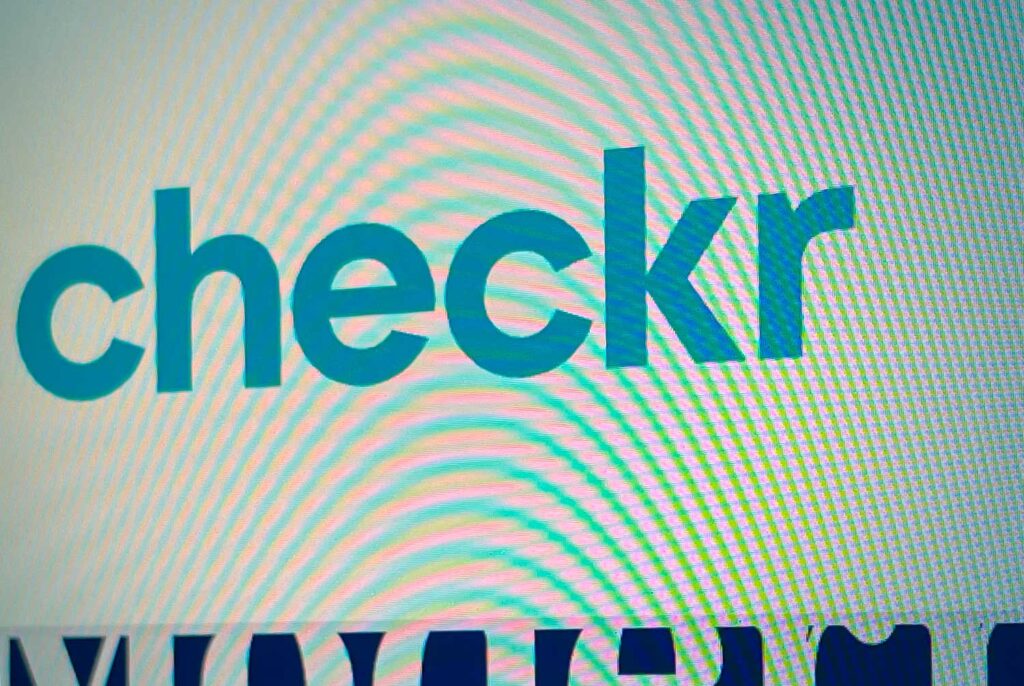
Q1 2024
Meet Our Marketplace!

Take a peek at our ever-growing marketplace, showcasing partners that can help with every function that your HR team could possibly think of.
Visit Our MarketplaceFirst Advantage Acquires Sterling

In a bold yet unsettling move, First Advantage has set its sights on acquiring Sterling Check in a staggering $2.2 billion deal, sending ripples of concern throughout the background screening industry. Revealed on February 29, 2024, this acquisition threatens to shake up the dynamics of background screening services, leaving clients apprehensive about potential ramifications. With First Advantage’s track record as a dominant player in the field, the acquisition raises fears of reduced competition and increased monopolistic control, potentially limiting choices for clients seeking background screening solutions. This power play hints at a future where clients may face fewer alternatives and potentially higher costs as the industry landscape shifts under the weight of consolidation.
What does this mean for you? As the deal progresses, clients are left to ponder the implications of this merger on the quality of background screening services available to them. Concerns about data privacy and accuracy are already prevalent, raising valid worries about the future of client trust and satisfaction. Will prices increase? Will your point of contact change? Will your provider be bought out by a big-box brand next?
Understandably, plenty of individuals are wary of the impact this significant shift in the industry landscape may have on their businesses and operations. Here at Atlantic, we’ve operated with the same President and Vice President since our inception, and that isn’t changing anytime soon. To read more about the acquisition, click here.
ADP In Litigation Over Inaccurate Report

According to WebRecon LLC, 2023 saw a slight decrease in Fair Credit Reporting Act (FCRA) litigation. Despite this, ADP Screening & Selection Services, Inc. (SASS) has found itself involved in a complaint regarding the inaccuracy of a pre-employment screening report provided to a company.
In the lawsuit, Plaintiff alleges that Defendant violated the FCRA by furnishing a background check report to their potential employer. The report portrayed the Plaintiff as a convicted murderer, which was inaccurate. But that was only the tip of the iceberg. The lawsuit describes that had the screening provider done “even a cursory review” of public court records, it would have been incredibly obvious that the case did not belong to the Plaintiff. Discrepancies between the plaintiff and the charged individual included their age, social security number, address, and other factors.
ADP argued that it was not required to provide the job seeker with a copy of his background check report because it did not decide to deny him employment. Instead, the decision was made by the employer, who had access to the report. ADP also argued that it complied with the FCRA by providing the job seeker with a summary of his rights under the law.
The court ruled in favor of the job seeker, stating that ADP’s failure to provide him with a copy of his background check report violated the FCRA. The court emphasized that the FCRA requires employers to provide applicants with a copy of their background check report before taking adverse action based on the report. ADP was ordered to pay damages to the Plaintiff.
This case highlights the importance of compliance with the FCRA’s requirements regarding background checks. Of course, Atlantic takes validation of court records very seriously. We work closely with the courts directly and validate with multiple identifiers before releasing reports to ensure you can hire based on accurate information. This way, you know the John Smith you’re hiring. Read more in the article here.
Legislation Updates Increase Nationwide

In 2024, we already see background screening legislation taking shape that employers need to monitor. With increasing focus on privacy laws, various states are introducing or amending legislation to protect the personal data of job applicants. This includes measures like restricting the use of credit history in hiring decisions and strengthening rules around data breach notifications, which is a push towards safeguarding individuals’ privacy rights.
Your team should be aware of a few other prevalent legislations:
Ban the Box Legislation
The ongoing evolution of ban-the-box legislation aims to remove inquiries about criminal history from job applications. By delaying questions about their past until later in the hiring process, these laws intend to give ex-offenders a chance at employment. These laws help folks get their foot in the door based on their skills and qualifications before their history comes into play. These laws are expanding in scope, with some jurisdictions broadening coverage to include more employers or imposing specific procedures for considering criminal records.
Fair Chance Hiring
Fair chance hiring initiatives are growing in nationwide support in the same department promoting workforce inclusion. Fair chance hiring is about giving folks with criminal records a fair shot at landing a job. Instead of focusing on past mistakes, it examines a person’s skills and qualifications. Employers practicing fair chance hiring might skip the questions about criminal history on applications and delay background checks. Both ban-the-box and fair-chance hiring help to provide employment opportunities for individuals with past criminal convictions.
Fair Credit Reporting Act Regulations
Of course, there’s continued emphasis on compliance with the Fair Credit Reporting Act (FCRA) regulations that govern background checks. Non-compliance can lead to legal consequences and damage a company’s reputation, highlighting the importance of prioritizing adherence to these laws. Technology is crucial in helping businesses navigate these complex regulatory landscapes more efficiently, with advancements in background screening software providing tools to ensure compliance while streamlining the hiring process. Atlantic strictly adheres to the FCRA and any additional state laws regarding reporting in background checks, so you can rest assured the reports you receive are compliant.
Overall, staying informed about these legislative trends is essential for employers and HR professionals as they navigate the ever-changing landscape of background screening regulations.
Checkr Lays Off 32% of Workforce

A recent article by the San Francisco Business Times[1] has reported that Checkr, in a major industry shakeup, is set to lay off more than 30% of its workforce. This accounts for approximately 382 employees across the company’s California and Colorado offices, with the layoffs scheduled to begin on June 10, 2024.
This move comes amid a broader consolidation within the background screening industry, raising concerns regarding declining customer service and the overall quality of service provided.
The background screening industry is at a critical juncture, where consolidation pressures reshape the competitive landscape and spotlight the importance of quality and reliability in the services offered. With acquisitions like First Advantage acquiring Sterling Check Corporation in recent news, customers are increasingly apprehensive about its potential impact on the quality of background checks and customer service.
In contrast to the challenges faced by its competitors, Atlantic Employee Screening stands out as a beacon of success and resilience. Celebrating 27 years of uninterrupted service, Atlantic Employee Screening has continuously focused on delivering the highest quality of service. Unlike the prevailing trend of service degradation post-consolidation, Atlantic has harnessed its decades of experience to provide a seamless background screening experience that is fast, accurate, and integrates effortlessly with most Applicant Tracking Systems (ATS).
One of Atlantic Employee Screening’s core differentiators is its unwavering commitment to client-centric service. By maintaining a live U.S.-based team, Atlantic ensures its clients receive prompt, personalized service, effectively avoiding the delays and generic responses that have become all too common in the industry. This approach not only enhances the client experience but also instills trust and reliability, which is crucial in the sensitive domain of background screening.
The recent developments at Checkr serve as a reminder of the challenges facing the background screening industry. However, they also highlight the opportunities for companies like Atlantic Employee Screening to lead by example. By prioritizing quality service, reliability, and a client-first approach, Atlantic demonstrates that even in times of industry turmoil, excellence in service can and should remain a paramount objective.
As the industry continues to evolve, Atlantic Employee Screening’s success underscores the importance of maintaining high service quality standards. It serves as a testament to the fact that in the competitive and often impersonal landscape of background screening, putting clients first is not just good business practice—it’s the foundation of lasting success and growth.